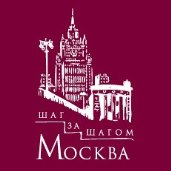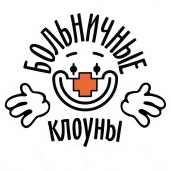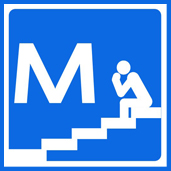The story of Moscow’s first chemist shops
10.03.2017 21:00 Просмотров: 0
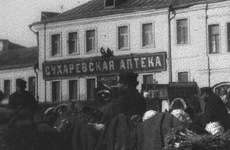 Just under 100 years ago, Moscow opened its first fixed-price chemist shop.
Just under 100 years ago, Moscow opened its first fixed-price chemist shop.
It is only logical that it was in Moscow that the apothecary business first took root on Russian soil. In the mid-16th century, four physicians and four apothecaries came to Moscow from Europe. They were to treat only the Tsar’s family.
A new era for Russian medicine was ushered in under Tsar Mikhail Romanov. He established the Apothecary Chamber, which was renamed the Apothecary Prikaz in 1620, and an apothecary school. The first chemist shop opened in 1672, and the medicines were dispensed to the monarch’s family members as well as others.
The apothecary network
Peter the Great was impressed by the apothecaries he saw during his visit to the German principalities, and ordered on 22 November 1701 that eight similar establishments be opened in Moscow. The Tsar prohibited the apothecaries from selling alcohol and placed them under the authority of the Ambassadorial Prikaz, or the contemporary Russian Foreign Office. All other shops selling herbs and potions were ordered closed.
To provide useful and needful medicines, it is now ordained that eight apothecaries be built in Moscow; that they be built sparsely in Kitai Gorod, Bely Gorod and Zemlyanoi Gorod, and along large roads and wide and crowded streets; that the apothecaries sell various medicines and medicinal spirits and other needful and salubrious beverages. (Tsar Peter the Great’s law On the Establishment in Moscow of Eight Apothecaries with the Provision That They Sell no Liquors; On Transferring the Said Apothecaries to the Ambassadorial Prikaz and On the Elimination of Potion Shops).
Permission to open new chemist shops in Moscow was granted only in 1784. By 1910, they numbered 83, or 78 stores and five branches. Each store was privately-owned, but the market was closed. Population figures, the number of prescriptions issued annually by already existing establishments, and official recognition by city authorities of the people’s need for more chemist shops were the decisive factors that determined if a new chemist’s could be opened. The authorities, however, were under the heavy influence of the sellers already in business, and they, too, had to play by the rules in order to open a new chemist shops.
 Tverskaya Zastava Square. Photo by Pyotr Pavlov. Late 19th − early 20th centuries.
Tverskaya Zastava Square. Photo by Pyotr Pavlov. Late 19th − early 20th centuries.
Fixed-price chemist shops
Everything changed on 12 February 1912 when the Russian emperor signed a law that introduced changes to the chemist’s opening procedures. City and regional authorities no longer needed to pay attention to the number of already existing chemist shops, and could set up any number of their own establishments.
Popular demand for cheap medicines was very high in Moscow, and chemist shop owners were known to inflate prices. A recently opened chemist’s could be valued at 10,000 to 20,000 roubles, or 10 to 20 million roubles today. A prestigious establishment was worth even more − 50,000 to 100,000 roubles. High running costs pushed up retail prices.
In a situation like this, city authorities could not stand aside. The Moscow Apothecary Warehouse, which supplied free hospitals and clinics had an annual turnover of 600,000 roubles, which was enough for issuing up to 3 million prescriptions,
By opening the first fixed-rate city chemist’s, Moscow is stepping on the path to assisting its residents by decreasing medicine prices. Until now, the city could not address the issue of overpricing at private establishments. (A report by the Moscow State Duma, On the Establishment of the City Chemist’s for Fixed-Rate Dispensation of Medicines).
It was decided to start with one chemist’s to avoid missteps that could ruin the new initiative. Besides, Moscow could not yet budget the funds for an entire retail chain.
A benchmark was set in terms of the number of prescriptions to be issued in one year. It was 60,000 versus the average 50,000 in Moscow at the time with the provision that the figure could be increased.
By comparison, the Staro-Nikolskaya chemist’s, the most popular in Moscow, could boast the incredible number of 717,900 prescriptions in 1910.
“It should be noted that Muscovites have a tendency to frequent the chemist’s that they believe guarantees good quality and impeccable manufacturing of medicines, and consumers are ready to spend a lot for that.”
Photo: Opening a city chemist’s for the fixed-rate sale of medicines. 1916.
 Opening a city chemist’s for the fixed-rate sale of medicines. 1916.
Opening a city chemist’s for the fixed-rate sale of medicines. 1916.
Tsar Peter’s legacy
City authorities were aware that the first fixed-price chemist’s was a small step forward and could not, all on its own, bring inflated prices down. Even during the initial discussions, it was pointed out that if the experiment proved successful, a retail chain should follow soon.
On 23 October 1916, the first fixed-rate chemist’s opened at the corner of Kaluzhskaya Square and Bolshaya Yakimanka Street. The location was not random and several factors were considered: the new chemist’s was to open in center Moscow within Sadovaya Street, as the Garden Ring was known then, and in an area with busy traffic. Also, there shouldn’t be any popular private chemist’s shop in the vicinity because this could interfere with the new establishment.
Just a few weeks passed when city council deputy Nikolai Shamin stated that the project was a success and that Muscovites’ trust in it was growing. He then drew attention to Peter the Great’s eight-chemist’s decree.
“Recalling the order issued by Peter the Great, it would be desirable for the Moscow City Council to open seven more chemist shops in the city.”
The Moscow City Duma voted unanimously in favour of the proposal on 15 November 1916.
The Russian Revolution a year later made irrelevant the competition with private pharmacies and the need to cut down prices to help those in need. All the chemist shops were nationalised, to be managed by the People’s Commissariat for Healthcare.
 Nikitskiye Vorota Square. Photo by K. Pavlov. November 1917.
Nikitskiye Vorota Square. Photo by K. Pavlov. November 1917.
Modern chemist shops
The Chemist’s of Moscow, a public-funded chain of 119 chemist shops, complements the private sector in the city. Thirty-nine chemist shops are part of the medicine dispensation programme for those entitled to social benefits. Certain categories of Muscovites are entitled to a 50 or even 100 percent discount on medicine and other medical products at 228 chemist shops.
Source: mos.ru
See other:
 Nativity Church at Putinki
The Church of the Nativity of the Theotokos at Putinki is one of the most picturesque churches in Moscow and the last major tent-like church in the history of Russian a... Подробнее...
Nativity Church at Putinki
The Church of the Nativity of the Theotokos at Putinki is one of the most picturesque churches in Moscow and the last major tent-like church in the history of Russian a... Подробнее...  Vladimir Vysotsky remembered
Vladimir Vysotsky's legacy comprises of over 600 songs and over 100 poems. He sang his songs with the accompaniment of a “Russian” seven-string guitar.
Подробнее...
Vladimir Vysotsky remembered
Vladimir Vysotsky's legacy comprises of over 600 songs and over 100 poems. He sang his songs with the accompaniment of a “Russian” seven-string guitar.
Подробнее... 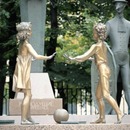 Bolotnaya Square
The name of the area, Boloto (literally meaning the marsh), was known since the 14th century, when it was located in the meadows on the low bank of the Moscow River and... Подробнее...
Bolotnaya Square
The name of the area, Boloto (literally meaning the marsh), was known since the 14th century, when it was located in the meadows on the low bank of the Moscow River and... Подробнее...  The Marfo-Mariinsky Convent
The angel standing on a cloud has blue wings and a lily in his hands. The angel is painted on a column in the Church of the Intercession of the Mother of God in the Mar... Подробнее...
The Marfo-Mariinsky Convent
The angel standing on a cloud has blue wings and a lily in his hands. The angel is painted on a column in the Church of the Intercession of the Mother of God in the Mar... Подробнее... 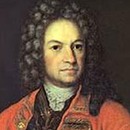 Moscow legends about count Bruce
We will tell you about one of the most remarkable Moscow residents, a contemporary of Peter the Great, Count Bruce, whose life gave rise to a great number of legends, m... Подробнее...
Moscow legends about count Bruce
We will tell you about one of the most remarkable Moscow residents, a contemporary of Peter the Great, Count Bruce, whose life gave rise to a great number of legends, m... Подробнее... Our Friends
Contact us
E-mail: admin@anothercity.ru

